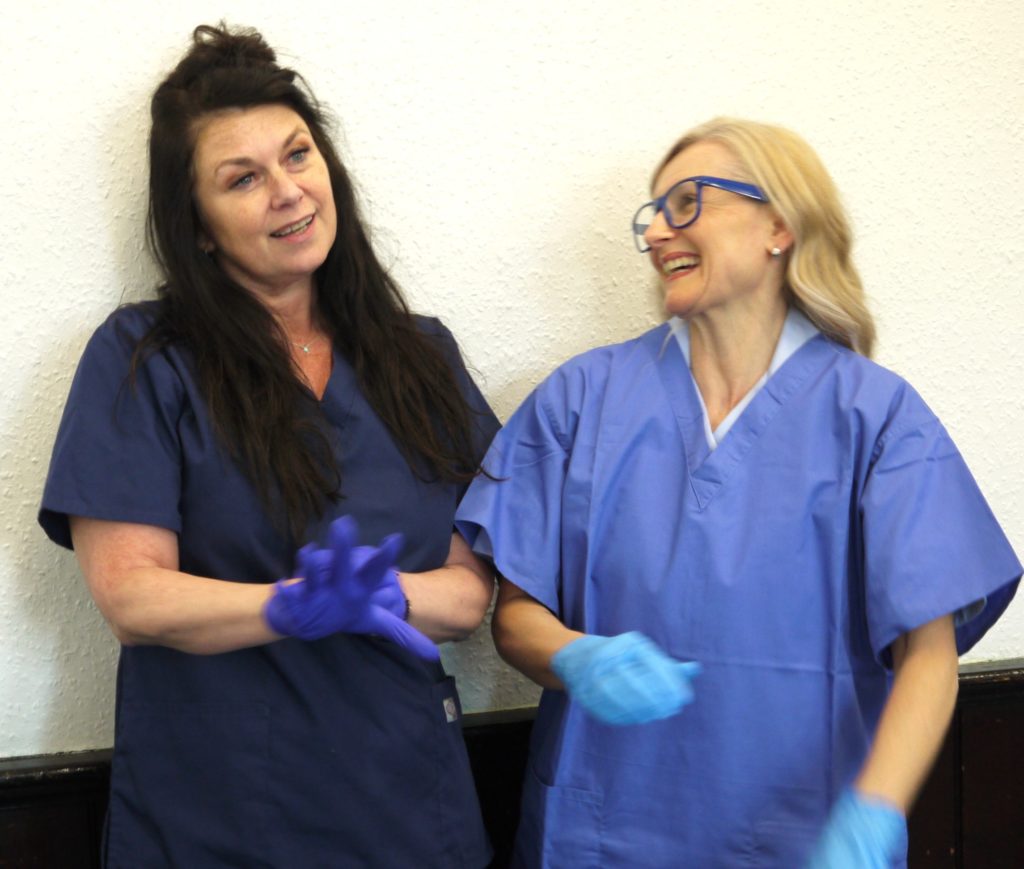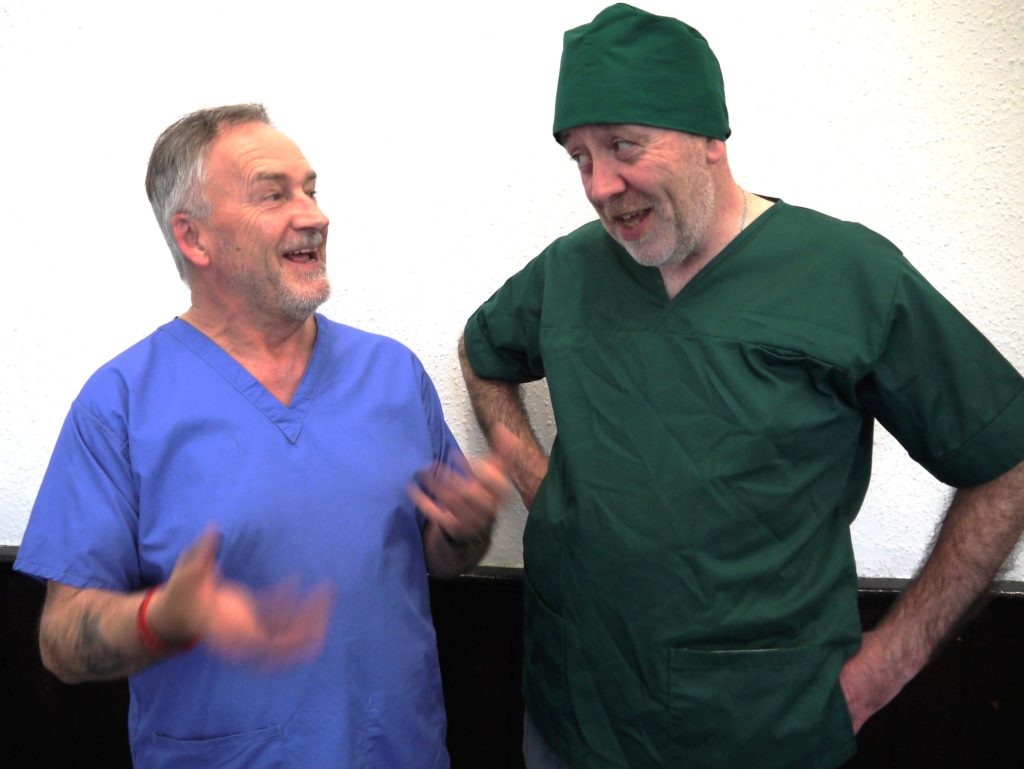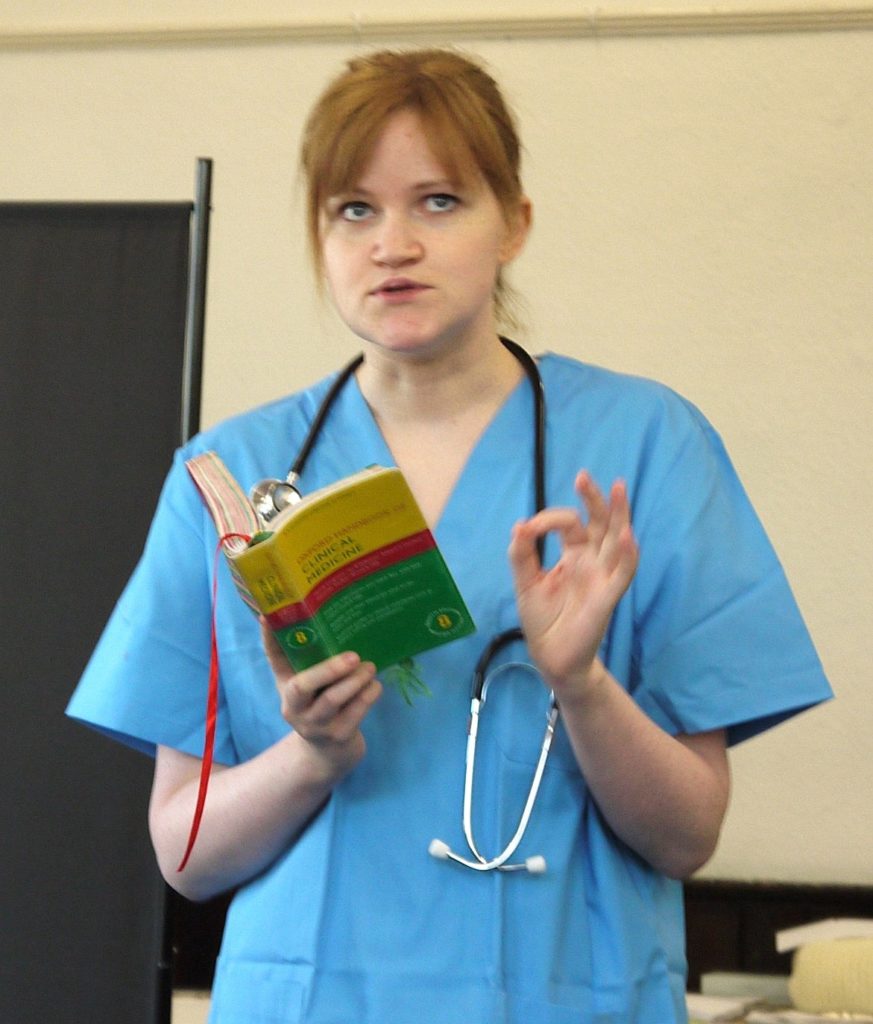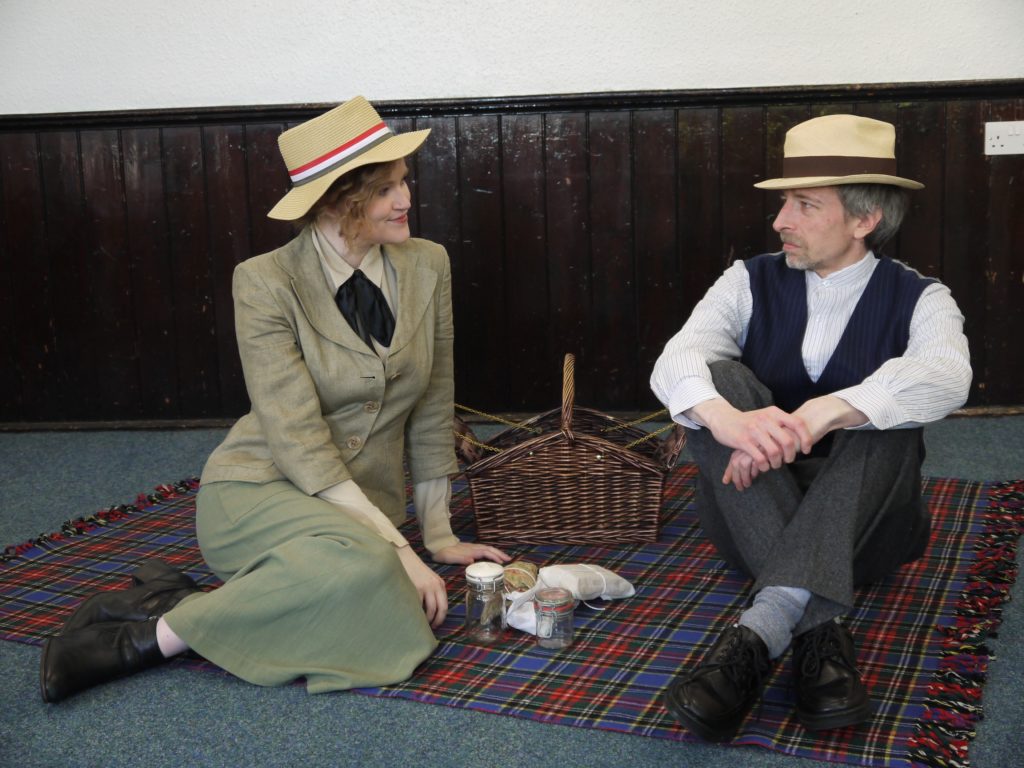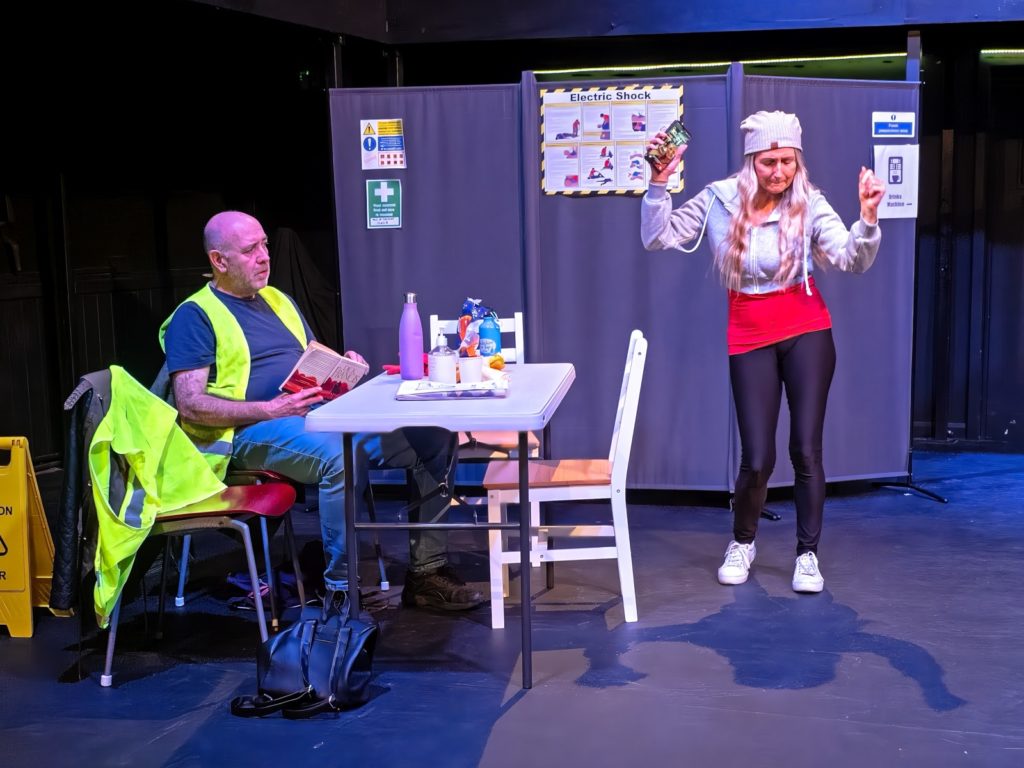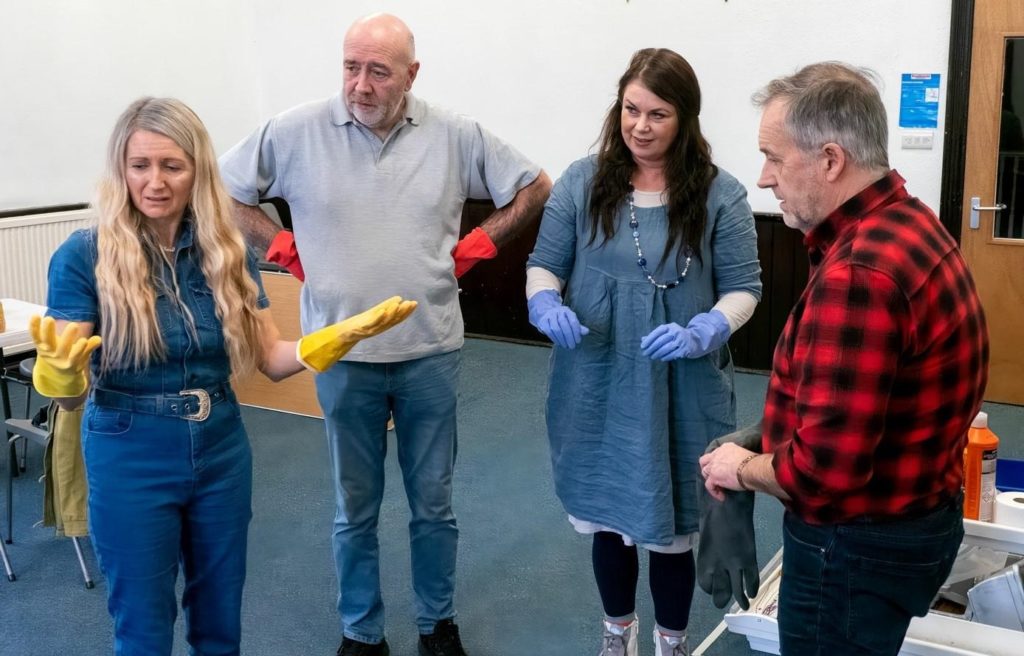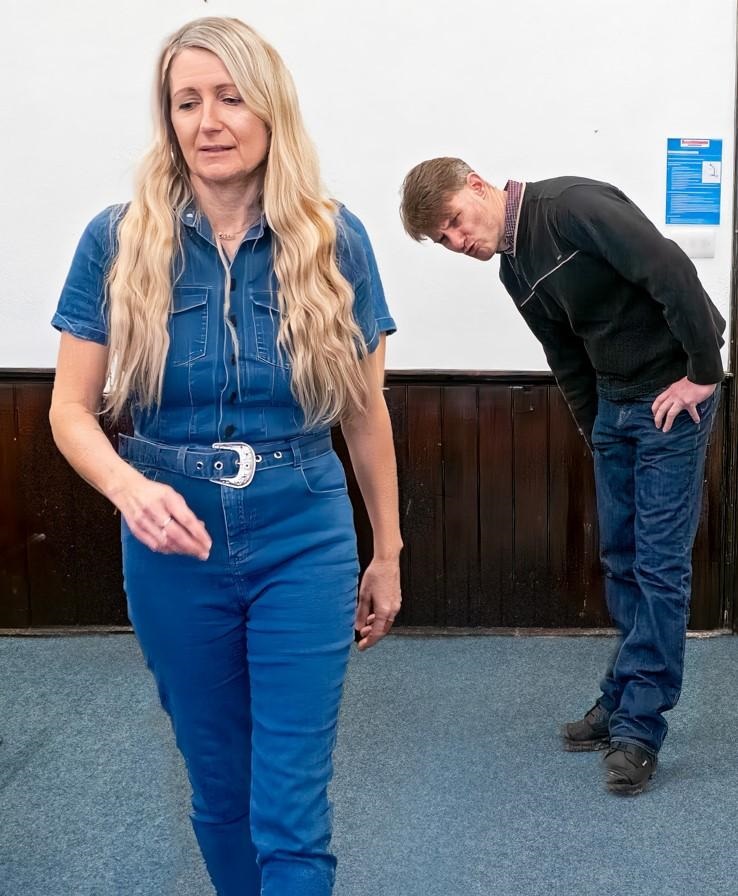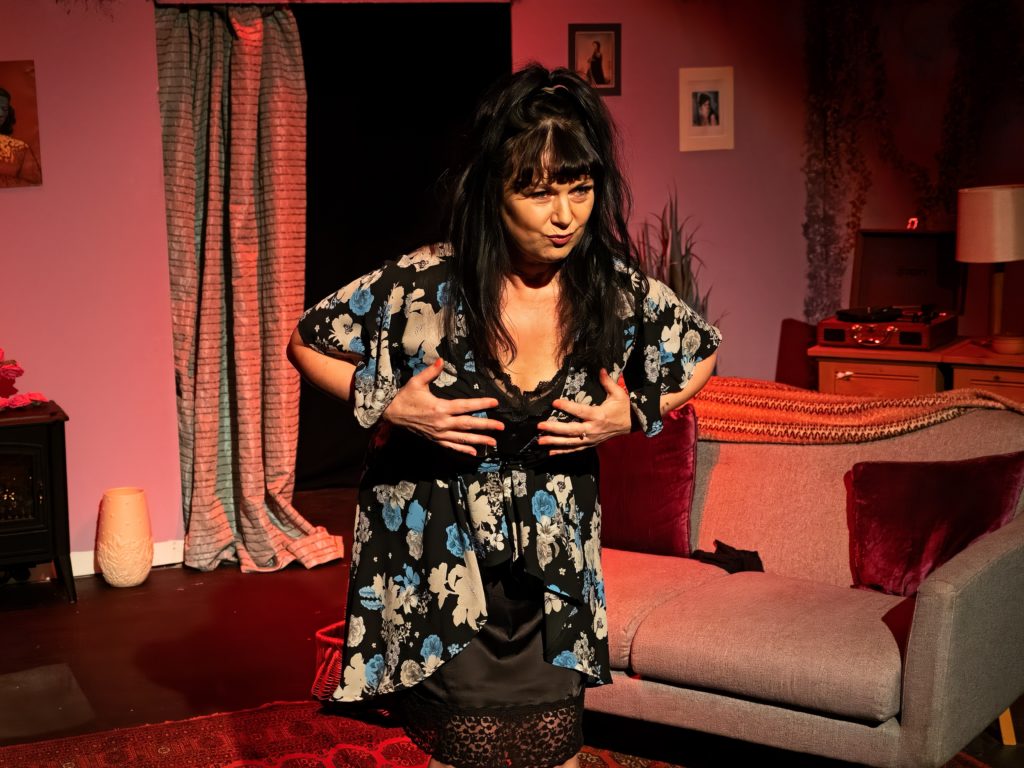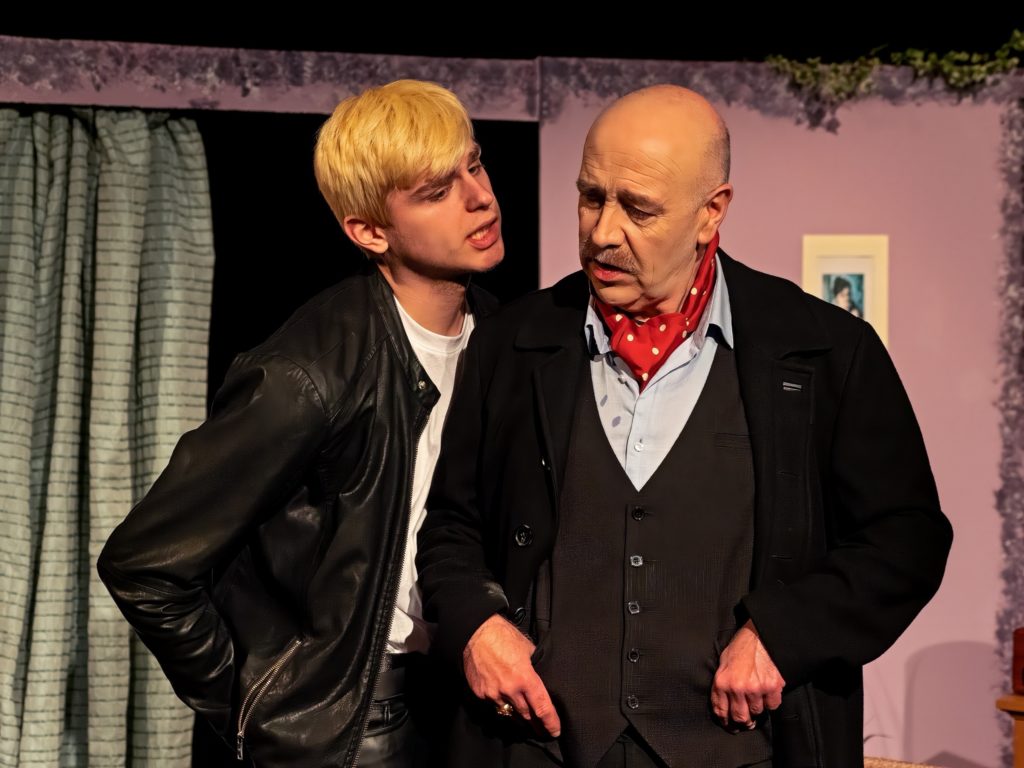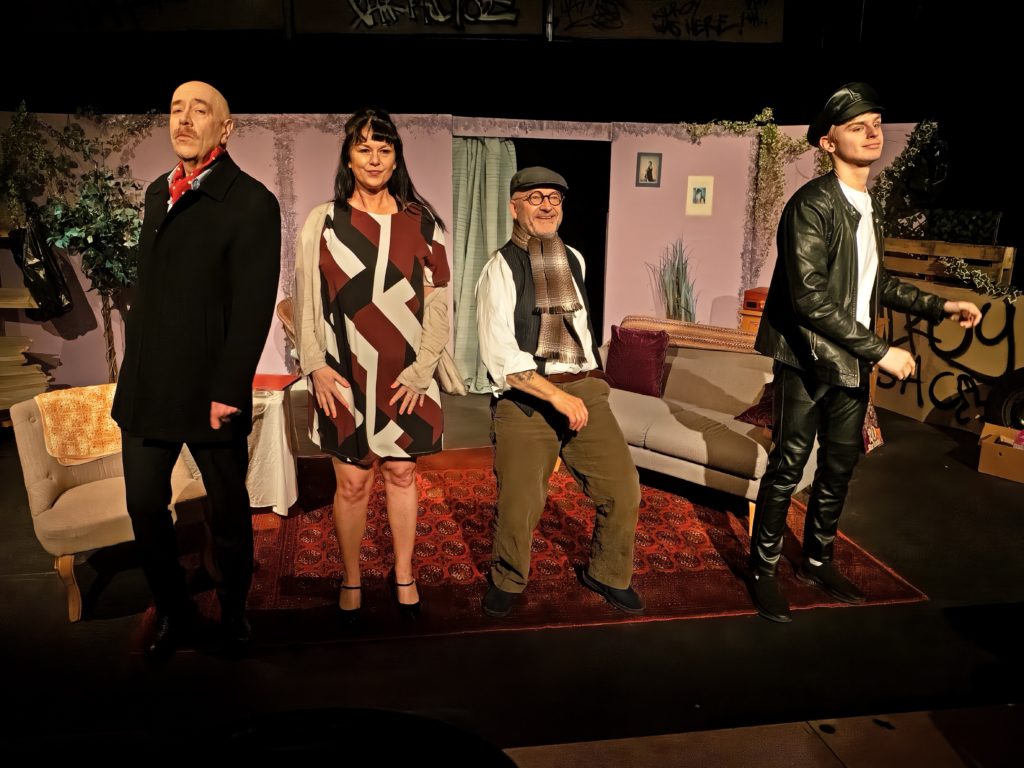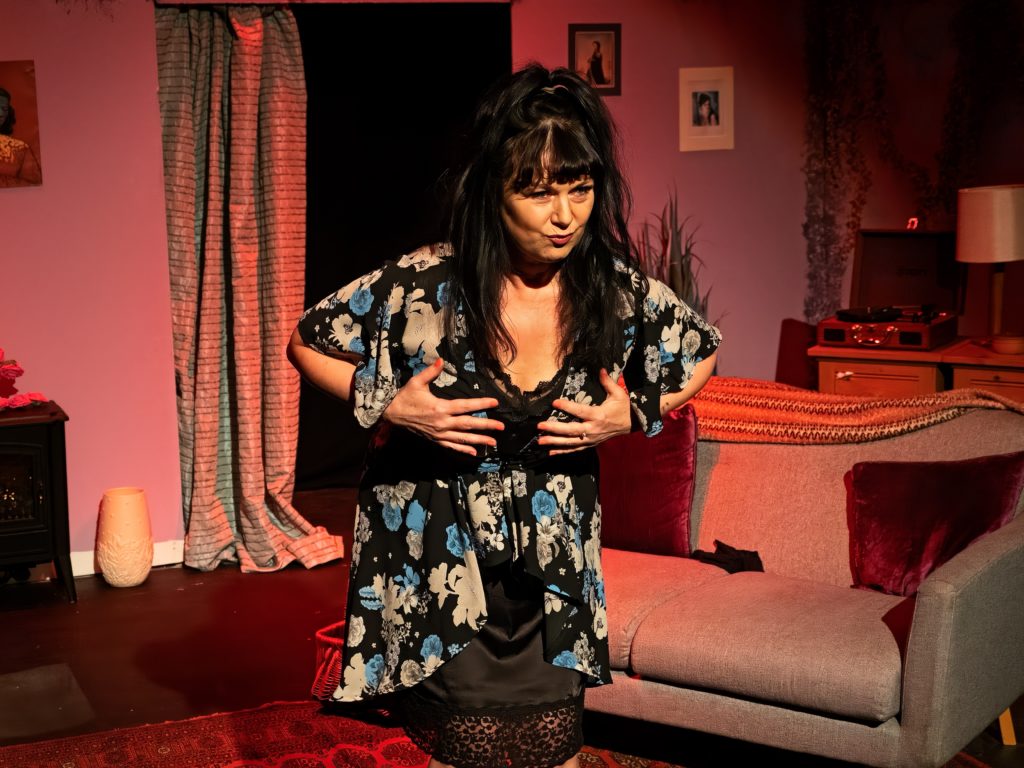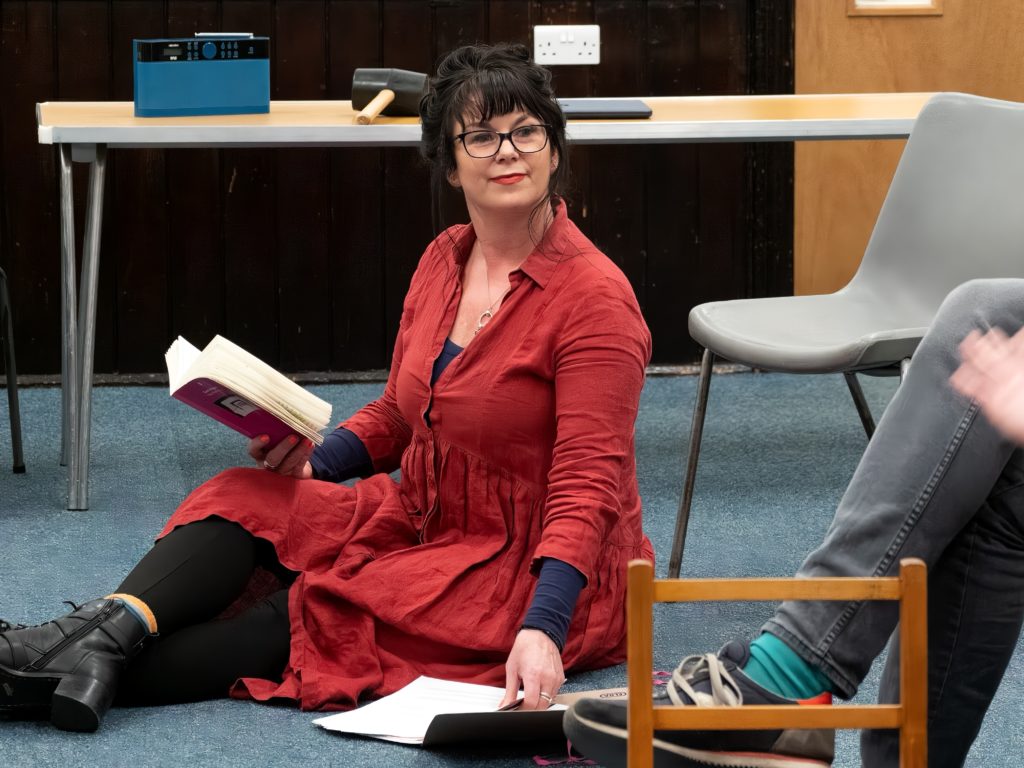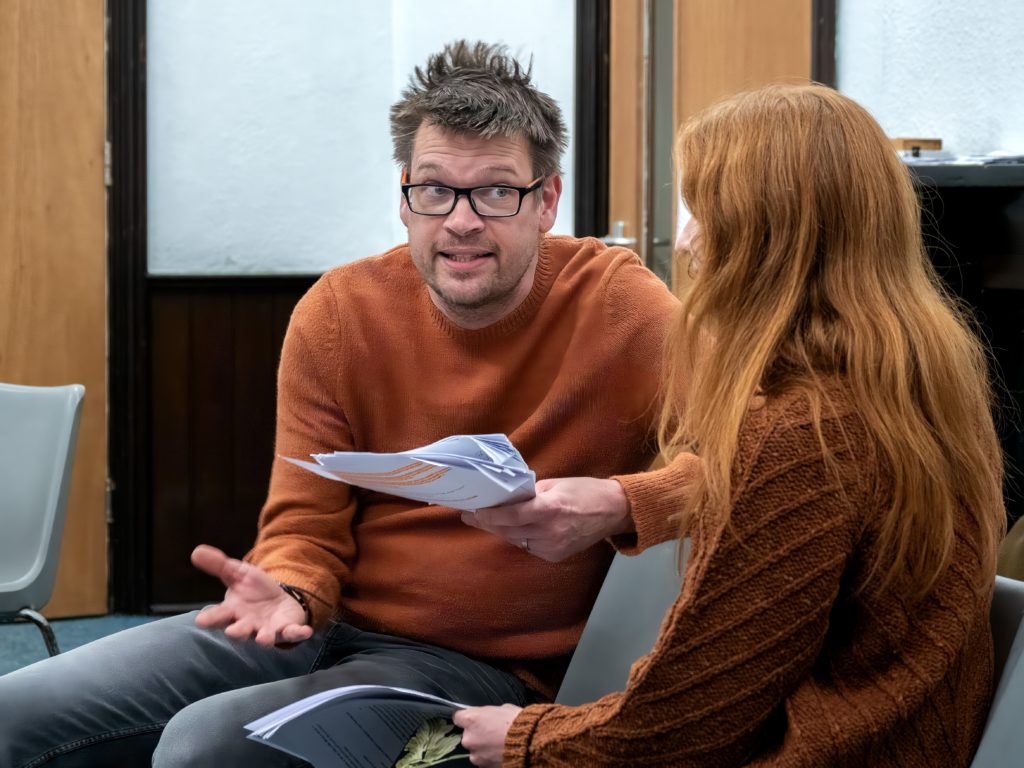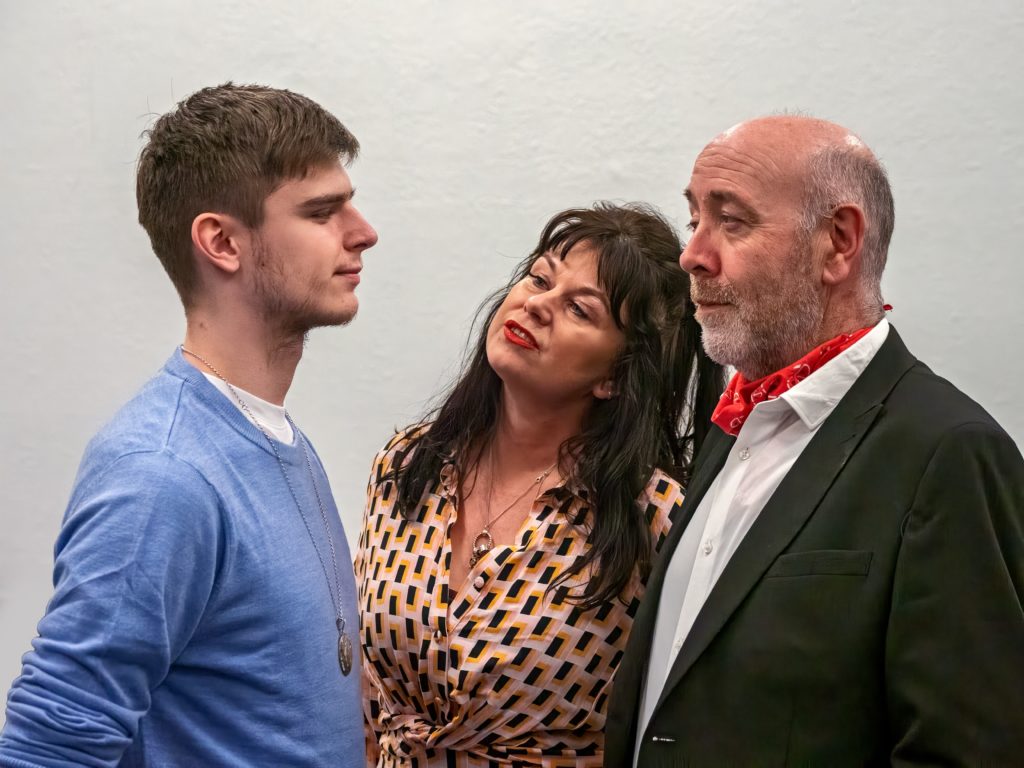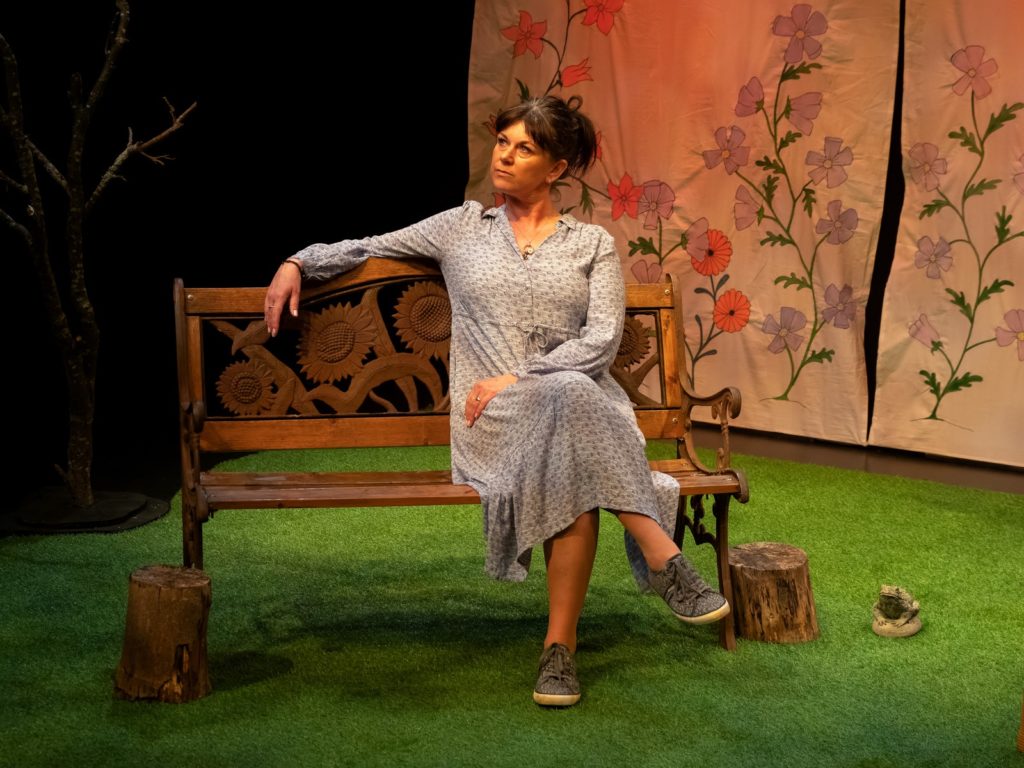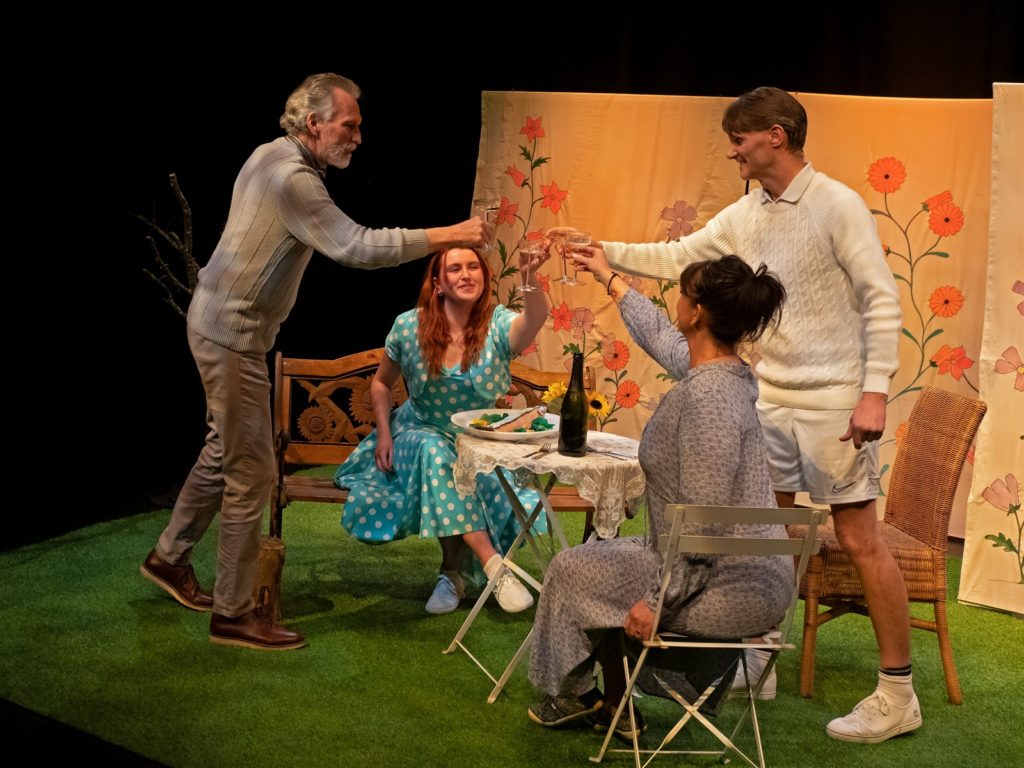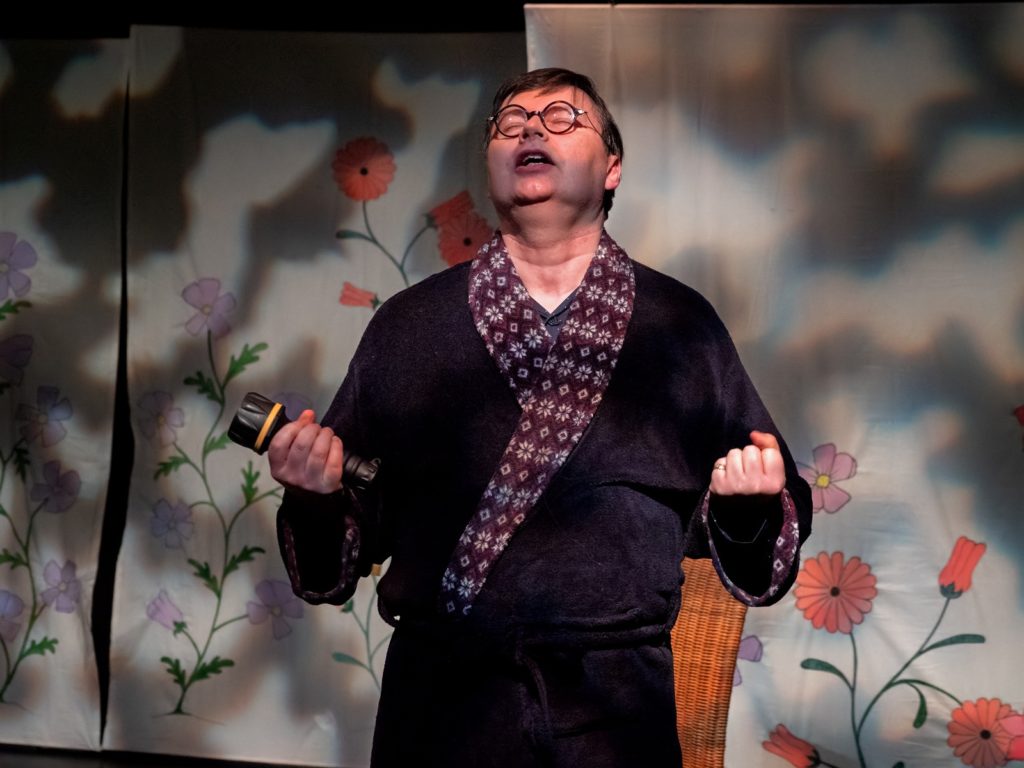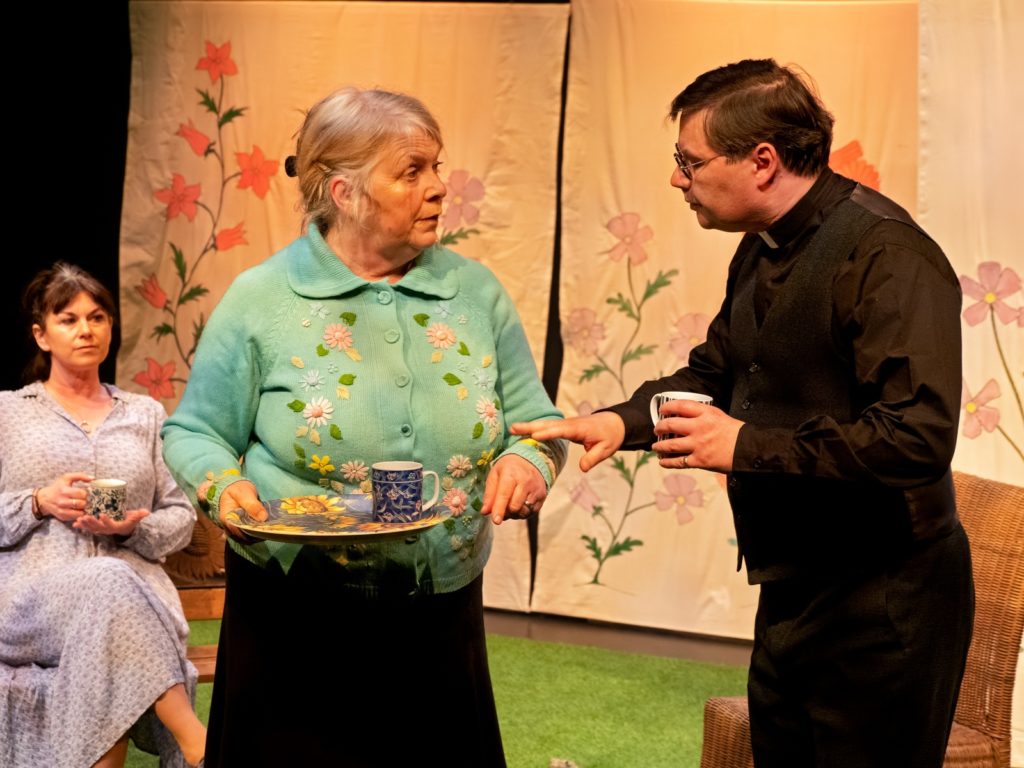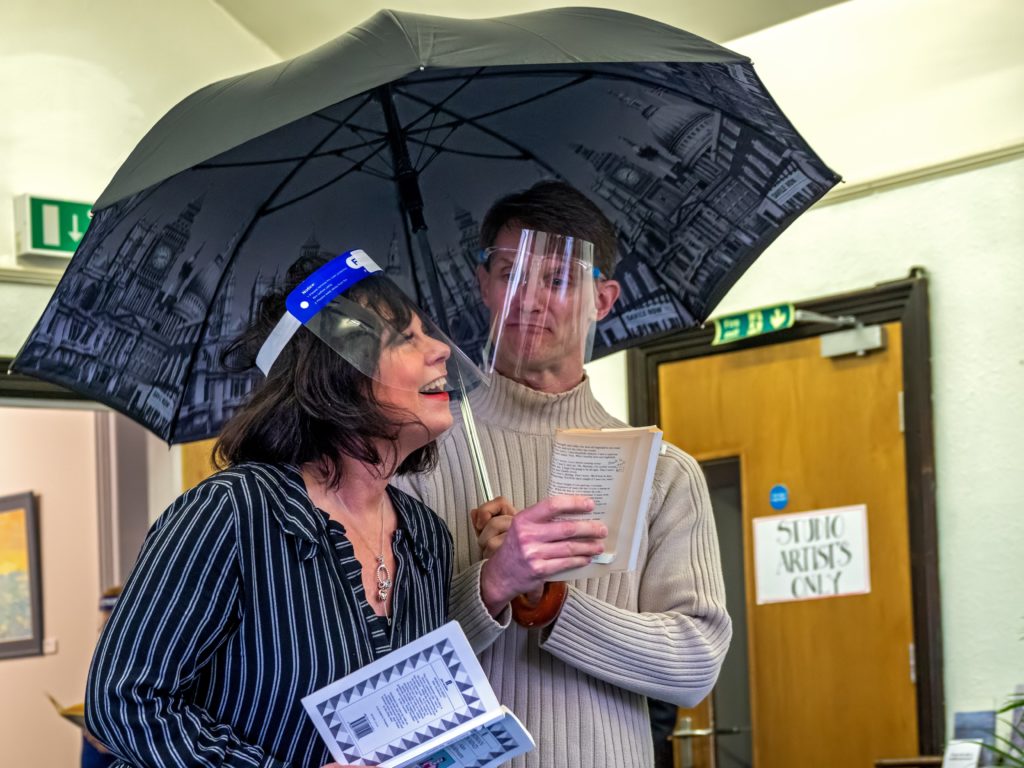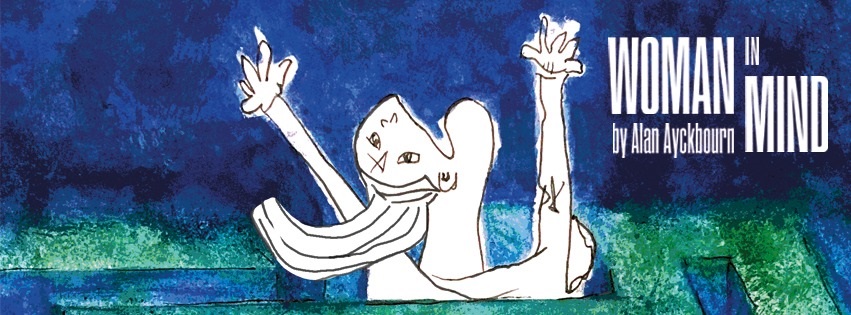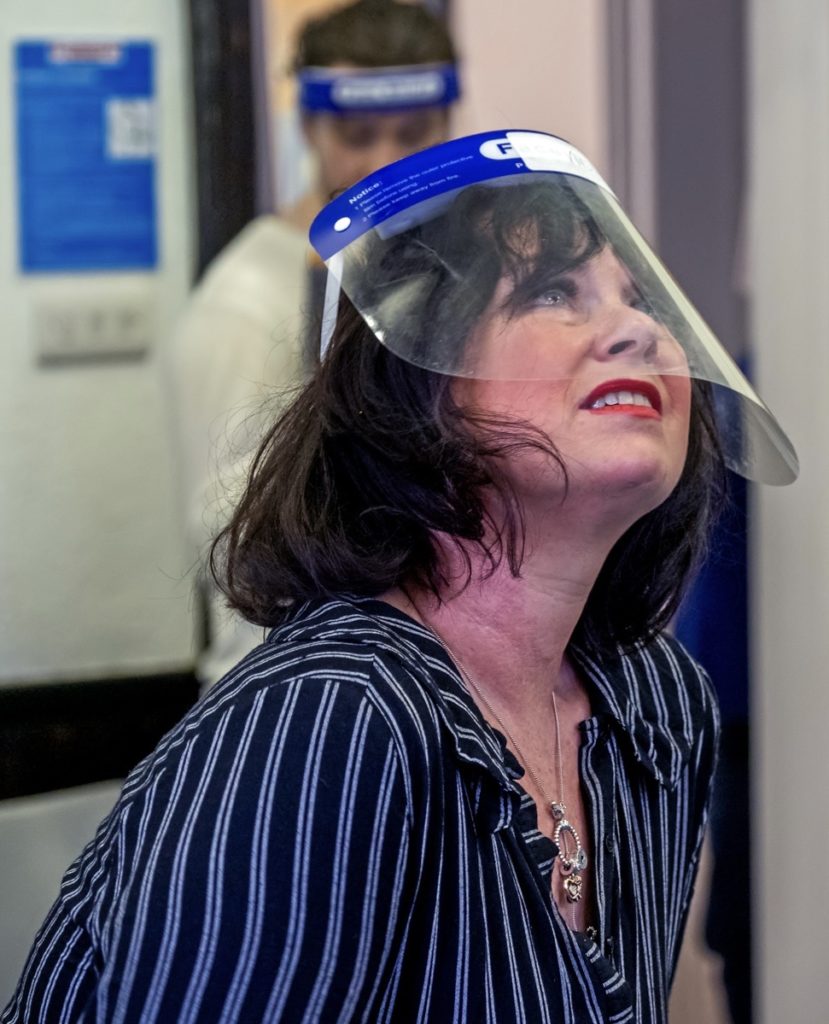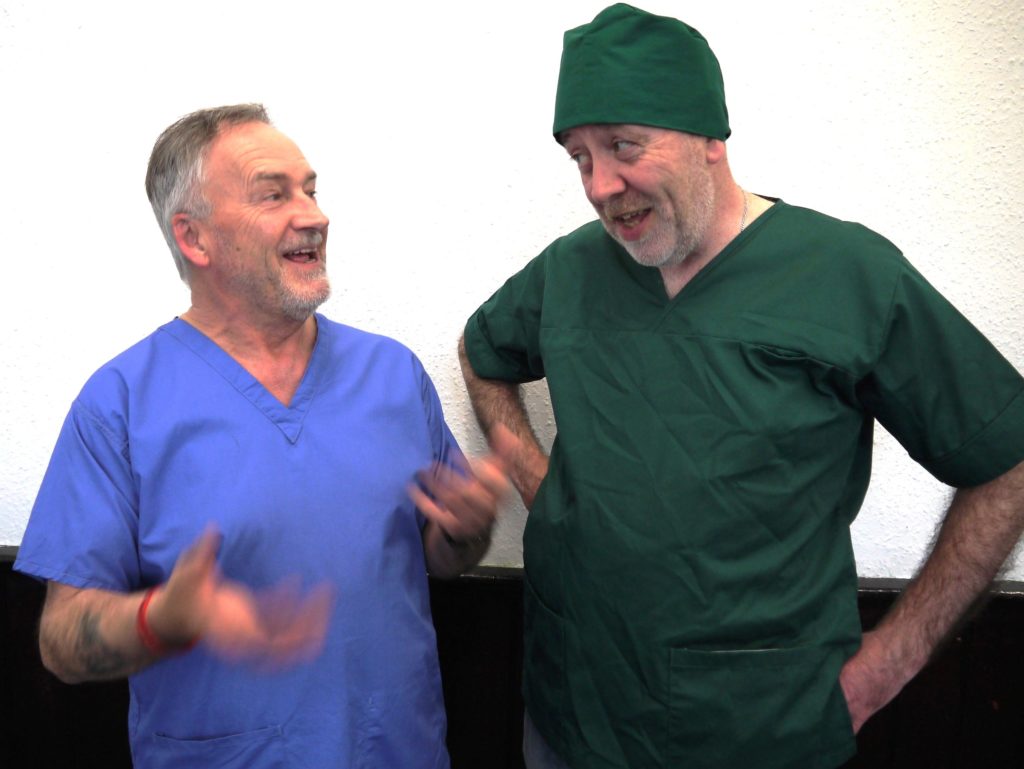
Medical matters: Mick Liversidge, left, and Chris Pomfrett in discussion in York Actors Collective’s Tiger Country
TIGER Country is drama on the cutting edge, taking its title from the term used by a surgeon when conducting an operation near a major blood vessel.
Hospital dramas are two a penny on TV, whether made in the UK or imported from the USA and beyond. They are, however, a lesser spotted breed of theatre: York Actors Collective director Angie Millard could recall Peter Nicholls’s 1969 black comedy The National Health, but nothing since.
It would be too much of a stretch to include the 1997 musical version of Jekyll & Hyde or Dr Frank N Furter in Richard O’Brien’s The Rocky Horror Picture Show.
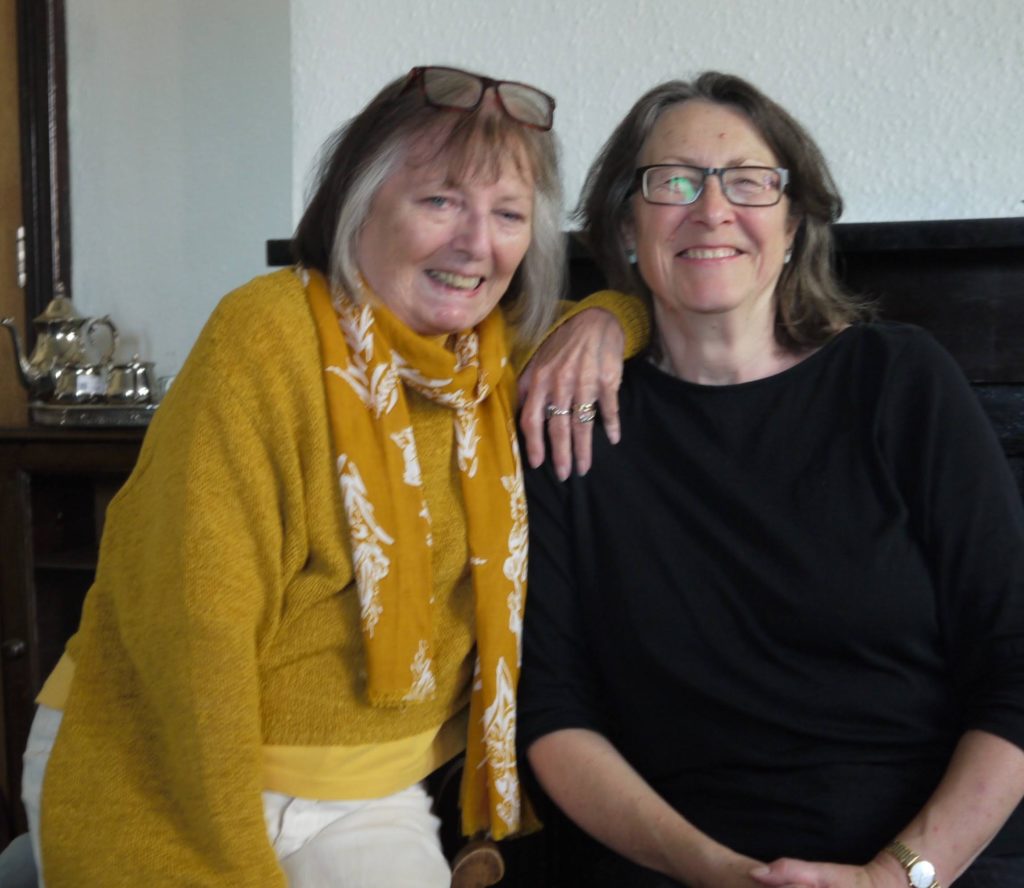
What’s more, Nina Raine’s focus falls on the doctors and nurses, rather than the patients, whose stories tend to be front and centre in the TV shows.
Premiered at the Hampstead Theatre in 2011, and last performed at the same London theatre in 2014, Tiger Country receives its belated York premiere this week, reaffirming Millard’s knack for reactivating works that may otherwise have escaped our attention, in her desire to bring more political, thought-provoking theatre to the York stage.
After Joe Orton’s Entertaining Mr Sloane, Alexander Zeldin’s slice of agitprop Beyond Caring and Millard’s adaptation of J M Barrie’s rediscovered 1920 supernatural drama Mary Rose, now Millard matches Raine’s meticulous research in her theatrical representation of operations and procedures.

Sri Lanka-born actor and nursing care assistant Madusha Fernando in Tiger Country
She calls them “mimes”, but they have the feel of authenticity, albeit making allowance for being in a theatre, not a hospital theatre.
Millard has drilled into her cast the need for speed at all times, on entries and exits, to match the hectic day in a life of a hospital for her “most challenging production” to date.
Drawing on her extensive research observing daily practice in hospitals in London, West Sussex, Staffordshire and Oxford, and her interviews with candid doctors, Raine favours quick scenes, in keeping with TV and film editing.
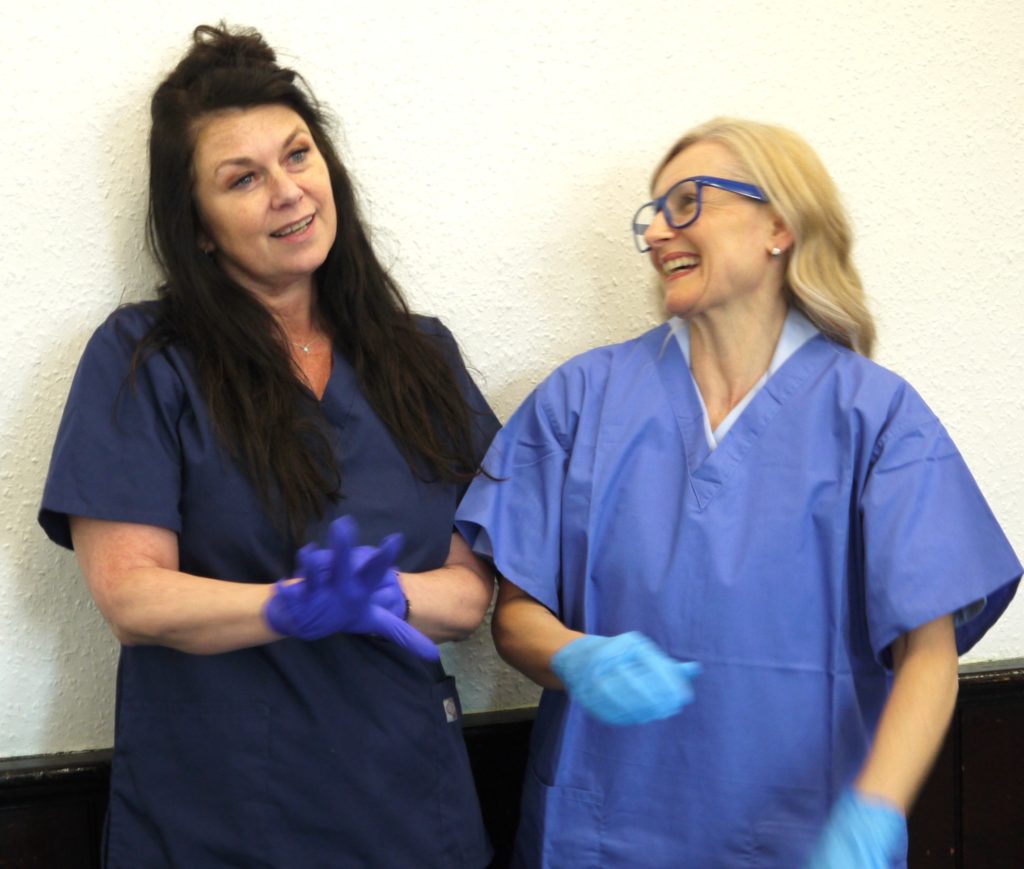
Glove story: Victoria Delaney, left, and Clare Halliday in Tiger Country
In turn, Millard uses hospital signs, and sometimes video footage, to denote a change from A & E to the Doctors’ Mess to the Consultant’s Room with the minimum fuss on an open-plan set where beds, a desk, mess chairs, a wheelchair and a CPR dummy are whizzed on and off.
All human life (and death) is here amid the badinage and the bandages. As Millard observes in her programme note, “what shines through is the humanity needed to be an NHS worker in today’s world”, one she she updated to post-Covid times. Humanity is shown in both a good and a bad light, not least in the machinations of the NHS, where medics and surgeons argue over procedure and protocol, to the detriment of patients.
Victoria Delaney’s consultant, uncompromising and demanding in a male-dominated environment, stands out. Friction sparks in the mess, especially between Laurence O’Reilly’s cynical medic and Xandra Logan’s restless trainee doctor, whereas Chris Pomfrett’s unflappable consultant always suggests a good night’s sleep is the solution to any problem.
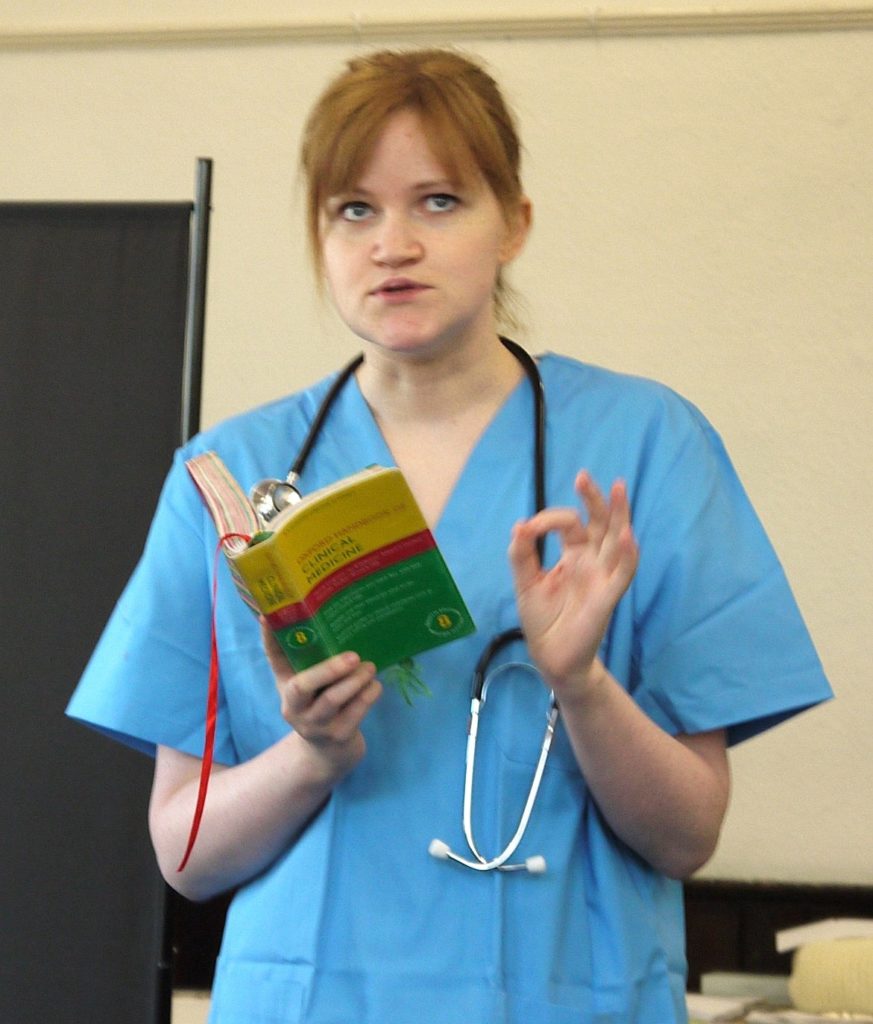
The impatience of being earnest: Xandra Logan’s trainee doctor, anxious to learn on the job in Tiger Country
Lucinda Rennison, Mick Liversidge and Clare Halliday multi-role play with impressive diversity, and Madusha Fernando brings humour when most needed.
Teamwork is everything in the play and performance alike, but with individual will having a huge impact too, both positive and negative. When Delaney’s consultant has to inform Liversidge’s cancer patient that he is dying, a chill stillness takes over Theatre@41. Theatre at its most powerful, when even medicine is powerless to change life’s path.
York Actors Collective in Tiger Country, Theatre@41, Monkgate, York, until May 31. 7.30pm tonight, Thursday and Friday; 2.30pm and 6pm, Saturday. Box office: tickets.41monkgate.co.uk.

York artist Karen Winship’s painting from the Tiger Country programme cover, painted for her series of Covid portraits in 2020

